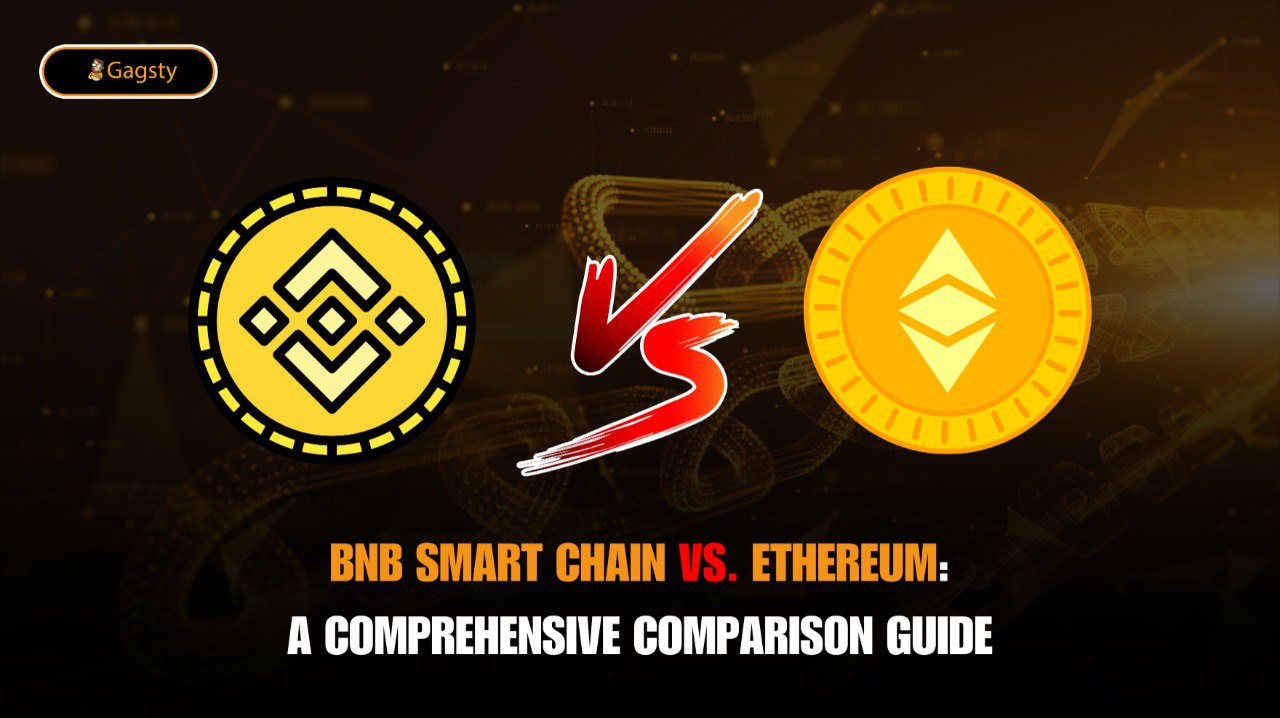
Two of the most well-known blockchain platforms on the market right now are BNB Smart Chain and Ethereum. Intuitive contracts and decentralized applications (dApps) are supported by both platforms. Before selecting one of these two platforms for your project, you should be aware of some significant differences between them. To help you make a wise choice, we’ll examine the differences between Ethereum and BNB Smart Chain in this tutorial.
Overview.
After Bitcoin, Ethereum is regarded as the second-largest blockchain platform and was introduced in 2015. Using smart contracts, which are self-executing programs that run on the blockchain, Ethereum enables developers to create decentralized applications. For transactional purposes, Ethereum accepts payments using its own cryptocurrency, dubbed Ether (ETH).
The more recent blockchain platform, BNB Smart Chain, was introduced by Binance in 2020. Because of this, developers can use the same resources and coding languages to develop dApps on BNB Smart Chain as they can on Ethereum. This is because it is built to be compatible with Ethereum. The cryptocurrency known as Binance Coin (BNB) is used by BNB Smart Chain to conduct transactions.
Mechanism for Consensus.
On the blockchain, transactions are verified through a process known as consensus. The Proof of Work (PoW) consensus algorithm used by Ethereum requires miners to solve challenging mathematical puzzles in order to validate transactions. This procedure uses a lot of computational resources and uses a lot of energy.
The Proof of Staked Authority (PoSA) consensus mechanism is used by BNB Smart Chain in contrast. The Proof of Stake and Proof of Authority (PoS and PoA) hybrid consensus mechanism. In order to become validators, validators must stake BNB. Validators are then in charge of approving transactions on the blockchain. This process uses significantly less computational power than PoW, making it more energy-efficient.
Speed and fees of transactions.
When choosing a blockchain platform, transaction speed and fees are crucial factors to take into account. Comparing Ethereum to BNB Smart Chain, Ethereum has a higher transaction fee. This is because a lot of transactions are being processed on Ethereum’s network, which is causing congestion. As a result, the average transaction fee on Ethereum can be quite high, especially during busy times.
On the other hand, BNB Smart Chain has lower transaction fees because of its more effective consensus mechanism. This makes it a more affordable choice for developers who want to make dApps that need a lot of transactions.
Interoperability.
The term “interoperability” describes the capacity of various blockchain platforms to communicate with one another. Because both Ethereum and BNB Smart Chain are interoperable, programmers can create decentralized applications (dApps) that work on both systems.
But in terms of interoperability, BNB Smart Chain outperforms Ethereum at the end. A fully compatible alternative to Ethereum’s ERC-20 token standard, BNB Smart Chain supports the BEP-20 token standard. As a result, developers won’t need to make any significant coding changes when transferring their dApps from Ethereum to BNB Smart Chain.
Conclusion.
Ethereum and BNB Smart Chain are both top-notch blockchain development environments for building decentralized applications. However, before selecting which platform to use, you should take into account some significant differences. A more energy-efficient consensus mechanism, lower transaction fees, and improved Ethereum compatibility all characterize BNB Smart Chain. On the other hand, Ethereum has a larger developer community, a more developed ecosystem, and a longer history of success. Your particular needs and objectives for your dApp will ultimately determine the platform you choose.
Leave a Reply